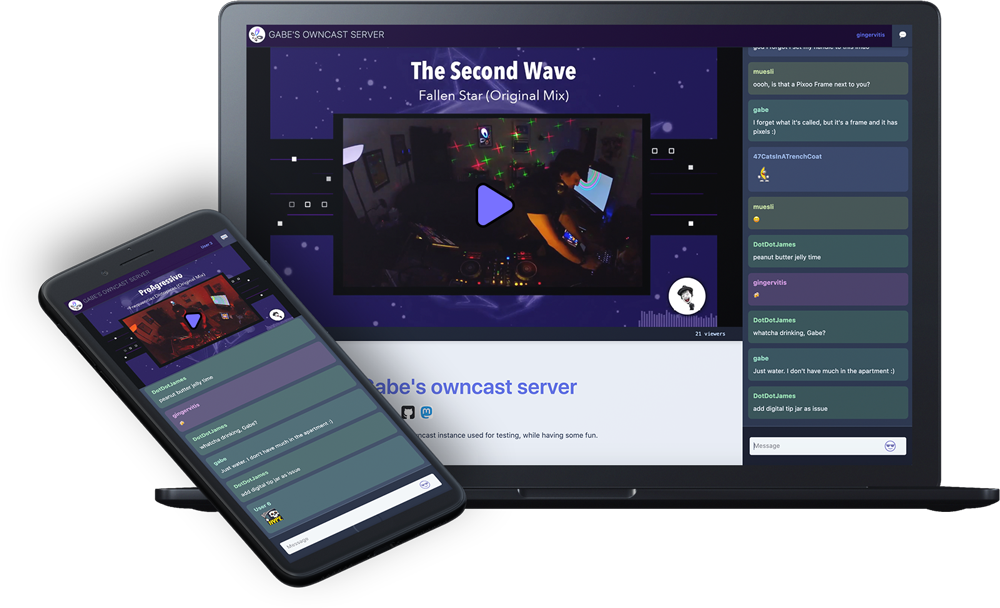This role will install owncast, an open source, self-hosted, decentralized, single user live video streaming and chat server for running your own live streams similar in style to the large mainstream options. It offers complete ownership over your content, interface, moderation and audience.
See meta/main.yml
# playbook.yml
- hosts: my.CHANGEME.org
roles:
- nodiscc.xsrv.common # (optional) base server setup, hardening, firewall, bruteforce prevention
- nodiscc.xsrv.monitoring # (optional) server monitoring, log aggregation
- nodiscc.xsrv.backup # (optional) automatic backups
- nodiscc.xsrv.apache # (required in the standard configuration) webserver/reverse proxy, SSL certificates
- nodiscc.xsrv.podman # container engine
- nodiscc.xsrv.owncast
# required variables
# host_vars/my.CHANGEME.org/my.CHANGEME.org.yml
owncast_fqdn: "owncast.CHANGEME.org"
# ansible-vault edit host_vars/my.CHANGEME.org/my.CHANGEME.org.vault.yml
owncast_admin_password: "CHANGEME"See defaults/main.yml for all configuration variables.
You can configure details of your owncast instance, get access to your streaming keys, etc. by accessing https://owncast.CHANGEME.org/admin in a Web browser, and logging in using the admin username and your admin password defined in owncast_admin_password.
Instructions for connecting a streaming client such as OBS Studio can be found in the Owncast documentation. Owncast is compatible with any software that uses RTMP to broadcast to a remote server. Documentation about managing the live chat or social features of Owncast can also be found there.
Viewers only need to access https://owncast.CHANGEME.org/ to display the live stream.
See the included rsnapshot configuration for information about directories to backup/restore.
owncast - setup owncast live streaming server
